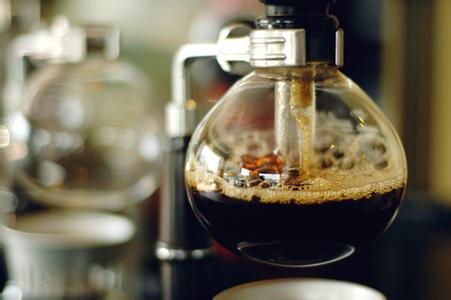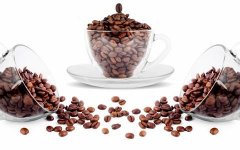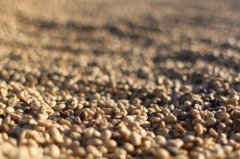Why is Blue Mountain Coffee so special? The best growing conditions in the world

Together, the weather, geological structure and topography of Jamaica provide a unique ideal place. The designated Jamaican Blue Mountain Coffee can only be grown in the Blue Mountain area, north-east of the island of Jamaica in Kingston. Coffee grows on a mountain with a maximum height of 1800 meters (almost 6000 feet), which is already quite high for small-grain coffee, and the mountains are very uneven and the process of harvesting is very difficult (coffee harvesting is almost entirely female). The tree is mainly small grain "GeishaHighBred" type. Seeds from these trees have been exported to other countries, such as Hawaii, Kenya, Papua New Guinea and elsewhere, but they are no longer able to create the flavor of Blue Mountain coffee beans anywhere.
In the steep and high-altitude mountains, careful farming and harvesting, all Jamaican Blue Mountain coffee is ground, tasted and distributed by the Jamaican Industry Association. The coffee in the cup tastes very clean, and it is one of the sweetest coffee in the world. This taste has been described by JimReynolds in Peet coffee and tea: "the best example of Jamaican Blue Mountain Coffee is its aroma, smoothness and richness." it makes me feel like a gem. It's as precious as a gem. It's complex, but very mild, it's sweet, it's very mellow. You have to taste it in order to know what I'm talking about. Unique growth conditions, and in all the production process are very careful, making Jamaica Blue Mountain Coffee very famous.
Jamaica is one of the small coffee-producing regions in the world, with an annual harvest of about 40000-60 kg / sack (Jamaican Blue Mountain coffee is actually shipped away in 70kg barrels, and they are the last country to still use this traditional packaging method, but they produce according to 60kg/ sacks, as that is the international standard for measuring coffee production). Compare Brazil, the world's largest exporter of coffee, with an annual production of 30000000 bags to 60 kg per sack.
The Japanese have invested heavily in the blue mountain coffee breeding area of Jamaica and have won 90% of the annual production. The rest of the world must bid for the remaining 10%, or 3500 barrels. The real Blue Mountain Coffee has a unique taste, making it the most expensive coffee in the world. Its demand is very high, so some of the market is in short supply.
Important Notice :
前街咖啡 FrontStreet Coffee has moved to new addredd:
FrontStreet Coffee Address: 315,Donghua East Road,GuangZhou
Tel:020 38364473
- Prev

Does instant coffee make you fat? The basics of drinking coffee
Instant coffee is all too familiar to everyone. The birth of instant coffee is great, which brings us friends the opportunity to enjoy delicious coffee at any time. We all know that coffee is rich in nutrients, which not only has a unique flavor, but also can lose weight. So will drinking instant coffee make you fat? Black coffee is a good way to lose weight in the coffee family because it contains almost nothing.
- Next

Why is Blue Mountain Coffee so special? Unique growth conditions
The unique growth conditions give birth to the unique flavor of Blue Mountain Coffee and make it one of the "gourmet Coffee". 100% of the world's pure blue mountain coffee comes from a specific range of the Blue Mountains in eastern Jamaica, and every step in its planting and processing has been subject to stringent standards of quality management by the Jamaica Coffee Industry Authority. can be proved to be "pure Jamaican Blue Mountain."
Related
- Beginners will see the "Coffee pull flower" guide!
- What is the difference between ice blog purified milk and ordinary milk coffee?
- Why is the Philippines the largest producer of crops in Liberia?
- For coffee extraction, should the fine powder be retained?
- How does extracted espresso fill pressed powder? How much strength does it take to press the powder?
- How to make jasmine cold extract coffee? Is the jasmine + latte good?
- Will this little toy really make the coffee taste better? How does Lily Drip affect coffee extraction?
- Will the action of slapping the filter cup also affect coffee extraction?
- What's the difference between powder-to-water ratio and powder-to-liquid ratio?
- What is the Ethiopian local species? What does it have to do with Heirloom native species?

